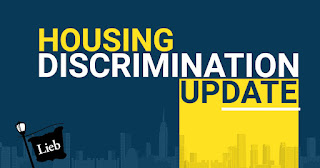Is real estate discrimination illegal?
Yes. Discrimination in real estate is illegal throughout the United States. In some states, like New York, there are even greater protections, rights, and damages available to victims of housing discrimination. You are entitled to compensation whether you were discriminated against by a seller, landlord, tenant co-op, condo, HOA, lender, real estate broker, salesperson, or property manager.
Does real estate discrimination only apply to housing?
No. Real Estate discrimination laws apply to both housing and places of public accommodation. Examples include shopping centers, professional offices, retail stores, recreational facilities, service centers, and educational institutions.
Can I sue for housing discrimination?
Yes. Not only is it possible to sue for real estate discrimination, but Lieb at Law, P.C. has helped countless individuals recover compensatory damages and punitive damages for the emotional distress inflicted by this unlawful act. If you or a loved one were discriminated against because of your protected status or class, it is critical to work with an experienced attorney who will fight to ensure that you receive the compensation you deserve.
What qualifies as discrimination?
Discrimination is classified as unfair treatment to an individual because of their protected status or class. These statuses/classes vary throughout the United States, but may include race, ethnic background, visible traits (hair texture, hairstyle, donning of religious garments or items), color, national origin, citizenship status, alienage status, immigration status, lawful source of income (subsidy recipient status), occupation, religion, creed, marital status, partnership status, sex, gender, sexual orientation, gender identity or expression (transgender status), domestic violence victim status, stalking victim status, sex offense victim status, familial status, pregnancy, presence of children, handicap (disability), age, military status, uniformed service, veteran status, first responder status, arrest record, and sealed conviction record.
Can a real estate / housing provider change the terms of a lease or contract based on my protected class?
No. The law prevents real estate / housing providers from changing the terms, conditions, privileges, and/or availability of property based on your protected class status. It requires real estate brokers / salespersons to give you written disclosures that advise you of your rights. It prevents you from being treated differently from others where only the terms of your offer matter, not who you are.
Are handicapped individuals entitled to housing accommodations?
Yes. If you are handicapped or disabled, you are entitled to receive reasonable accommodations and reasonable modifications to allow you to equally use and enjoy the property. Your actual diagnosis does not need to be revealed and can remain confidential if you seek an accommodation or modification. In addition, the cost of the accommodation cannot be charged to you. In places like New York City, the cost of modifications cannot be charged to you either.
What are common examples of disability cases concerning housing discrimination?
The most common handicap and disability cases that we see involve service animals or emotional support animals in no pet properties. Other types of cases include parking issues, egress ramps for mobility impairments, and additional failure-to-accommodate cases. When it comes to accommodating the rights of handicapped and disabled individuals, providing access is essential.
Can I be discriminated against based on my source of income?
Whether you receive subsidies, like Section 8 (Housing Choice Vouchers), or are unemployed and receive child support, disability, spousal support, or have a trust fund, your source of income cannot impact your housing choices. The law protects you from offensive signage, improper applications, and/or wrongful questionnaires if they inquire about your employment status, request your W-2, or solicit a letter of employment. Where you get your rent money is your business and yours alone.
Can I be retaliated against if I proceed with a discrimination lawsuit?
Don't be afraid to speak-up. If you are advancing a fair housing and/or anti-discrimination right, you are protected from retaliation. Even if it is ultimately found that you were not discriminated against, you can be compensated for facing unlawful coercion, intimidation, threats, or other types of interference with your anti-discrimination rights. It also applies if you are an ally who is aiding and/or encouraging someone else to exercise their rights to be free from discrimination.
What happens if I win my housing discrimination case?
As the victim, you can recover compensatory damages, punitive damages, and your attorneys’ fees. The perpetrator can lose their license (if applicable), be required to take trainings, be made to pay fines, and be ordered to stop their offensive behavior. Working with a top discrimination attorney affords you the best possible chance at a successful outcome to your case. If you or a loved one has been treated unfairly and is in need of legal assistance, contact our team today.
